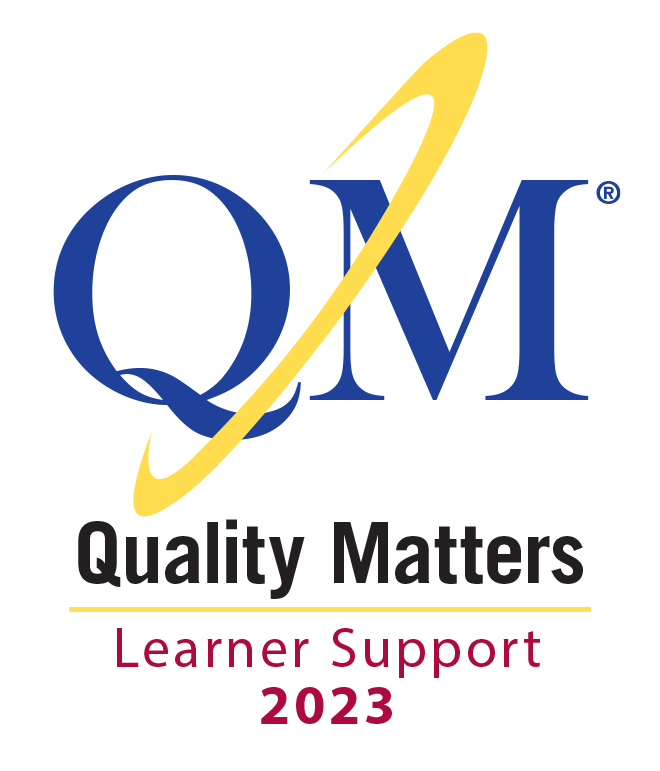Questions? Request Information
Support Diverse Learners
Learn to make education more accessible to all students with your Master of Arts in Special Education from the University of Arizona Global Campus (UAGC). In this special education master’s degree program, you will be provided with meaningful learning experiences based on the ways that exceptional students develop. Learn to design and implement curricula and collaborate with families, fellow educators, and communities to address the needs of exceptional students.
Upon completion of your online master’s in special education, you will be able to:
- Design safe, inclusive, appropriate learning experiences for students with exceptionalities that are informed by diverse cultural experiences, individualized patterns of learning and development, and evidence-based practices
- Construct learning experiences that cultivate active learning through technology, collaboration, and accommodations to support students with exceptionalities
- Create cross-disciplinary learning experiences using evidenced-based strategies that support individualized academic skills, social/emotional/behavioral abilities, attitudes, values, interests, and career options for students with exceptionalities
- Synthesize results from multiple evidence-based assessments to guide the decision-making process and incorporate research-based academic and behavioral strategies to enhance instructional delivery for students with exceptionalities
- Incorporate leadership, written/oral/technology-based communication, and career development skills to support professional expectations in the field of special education
- Evaluate how special education laws, regulations, and individual professional accountability influence ethical principles and practice standards
- Apply diverse methods and principles of research, critical inquiry, evaluation, and original scholarship to educational research questions and academic practices
- Integrate positive collaborative practices with various stakeholders to address the needs of students with exceptionalities across a range of learning experiences
Military Students $350.00/credit
Education Master’s Degree Courses $600.00/credit
Technology Fee** $145.00/course
Books and Other Class Materials** $155.00/average per course
Graduation Fee $150.00
Total Program Cost See UAGC Catalog¹
¹Keep in mind that this figure doesn’t factor in any potential discounts, partner benefits, or impact of accepted transfer credits, if eligible.

UAGC offers enrolled students access to ScholarshipUniverse, a platform that tailors external scholarship opportunities to your unique situation, making it easier to find and apply for scholarships.
UAGC is proud to provide reduced tuition rates for our academic and corporate partners, helping community college transfer students and corporate employees earn their degrees at a lower cost.


Master’s in Special Education Curriculum Overview
Your online courses in the Master of Arts in Special Education cover research, assessment, collaboration, and behavior management. Through embedded video observation, simulations, and interviews with professionals in the field, students’ online courses will guide them to apply what they learn in classroom settings. Graduates will come away with foundational knowledge as well as insights on laws, assessment, classroom instruction, and best practices for communication. They will also build an ePortfolio to showcase their learning through the program.
To be awarded the MA in Special Education degree, all students must complete 30 credits, with a 3.0 minimum grade point average in all coursework attempted at UAGC.
This program is not designed to meet the state educational requirements for teacher licensure or certification in any state. Students seeking teacher licensure shall carefully research their state's requirements prior to enrollment and regularly review the requirements as they are subject to change. Requirements vary by state. Graduates will be subject to additional requirements on a state-by-state basis that will include one or more of the following: student teaching or practicum experience, additional coursework, additional testing, or, if the state requires a specific type of degree, earning an additional degree. None of the University of Arizona Global Campus online education programs are accredited by the Council for the Accreditation of Educator Preparation (CAEP), which is a requirement for certification in some states. Other factors, such as a student’s criminal history, may prevent an applicant from obtaining licensure, certification, or employment in their field of study.
Alabama Students: Authorization to provide an education program does not indicate eligibility for an Alabama professional educator or professional leadership certificate. Applicants who complete an education or educator preparation program at a non-Alabama institution must apply for an Alabama professional educator or professional leadership certificate through the Alabama Certificate Reciprocity Approach. Current requirements may be found at https://www.alabamaachieves.org/teacher-center/.
Kentucky Students: Please be advised that although the University of Arizona Global Campus offers a variety of programs aimed at preparing potential educators in diverse settings, our programs are NOT accredited in Kentucky by the Education Professional Standards Board and are NOT recognized for initial, additional, or renewal of certification or salary enhancement (rank change) for K-12 educators in Kentucky. For more information, please visit the Education Professional Standards Board’s website at http://www.epsb.ky.gov/mod/page/view.php?id=220
Certain degree programs may not be available in all states.
The Online Teaching Support Certification recognizes programs that require all online faculty to undergo training in best practices for online course delivery, provide faculty with ongoing pedagogical support, encourage faculty professional development to increase their knowledge and skill in online teaching, emphasize instructor availability and feedback to learners, and collect and use feedback from learners to improve online teaching. Learn More

The Online Learner Support Certification recognizes programs that provide all the critical student and academic services needed for learner success and use learner feedback to continuously improve those services.

What Can I Do with a Master’s in Special Education?
Already-credentialed teachers may pursue a Master of Arts in Special Education degree to enhance or add a specialization to their career. Additional career options and fields may include:
- Teaching Assistants
- Special Education
- Administration
- Special Services
- Tutoring Services
- Test Preparation
Gain insights into the special education job market by reviewing the Bureau of Labor Statistics market outlook report.
UAGC gave me the time and freedom to serve my community and to work toward a career educating future generations.
Master of Arts in Special Education Online FAQs
-
Earning a master's degree in special education may lead to making a profound difference in the lives of students with special needs. This advanced degree equips you with specialized skills to address diverse learning challenges, making you a valuable asset in educational settings.
-
To enroll in the UAGC online master's program in special education, you will need:
- Bachelor's Degree: A bachelor's degree from an accredited institution.
- Minimum GPA: A cumulative GPA of 2.0 or higher.
- Access to Technology: Reliable access to a computer and internet connection.
Specific admission requirements may vary, so we recommend consulting with an enrollment advisor to understand all criteria and ensure you meet them.
-
At UAGC, you’ll take one master’s degree course at a time in six-week intervals, allowing you to balance school, work, and family commitments, while still being able to access your online classroom from anywhere. With 30 credits across 10 courses, the master’s in special education program can be completed in less than two years.
-
Your online courses in the UAGC Master of Arts in Special Education program cover research, assessment, collaboration, and behavior management. Through embedded video observation, simulations, and interviews with professionals in the field, your online courses will guide you to apply what you learn in classroom settings. Graduates will come away with foundational knowledge as well as insights on laws, assessment, classroom instruction, and best practices for communication. You will also build an ePortfolio to showcase your learning through the program.
See What Else UAGC Has to Offer
Questions? Request More Information
To access this rate using the Liberty Grant, only eligible undergraduate active duty service members, members of the National Guard, Reservists, spouses of active duty, members of the National Guard and Reservists, Department of Defense employees using Tuition Assistance (TA), and civilian employees of the United States Coast Guard (only if utilizing Military Tuition Assistance) will qualify.
**
The Technology Fee covers access to University systems such as the online classroom, the Student Portal, and other academic resources. The Technology Fee and the Course Digital Materials (CDM) Fee are fully refundable if a student does not attend beyond Day 3 of a course (Week 3 if covered under the University of Arizona Global Campus Promise Refund Schedule). After this time, the fee becomes non-refundable. Students are charged the Technology Fee for repeated coursework. Students are not charged the CDM fee for repeated coursework if previously charged.
†
The transferability of credits is subject to the University of Arizona Global Campus transfer credit policies and requires the submission of official transcripts. The official transcripts will be evaluated by the Registrar’s Office to determine the credits that will officially apply toward a UAGC degree program. Credits must be earned at the same degree level in order to be applied. Additional restrictions may apply. See the UAGC Academic Catalog for full undergraduate and graduate transfer policies.




